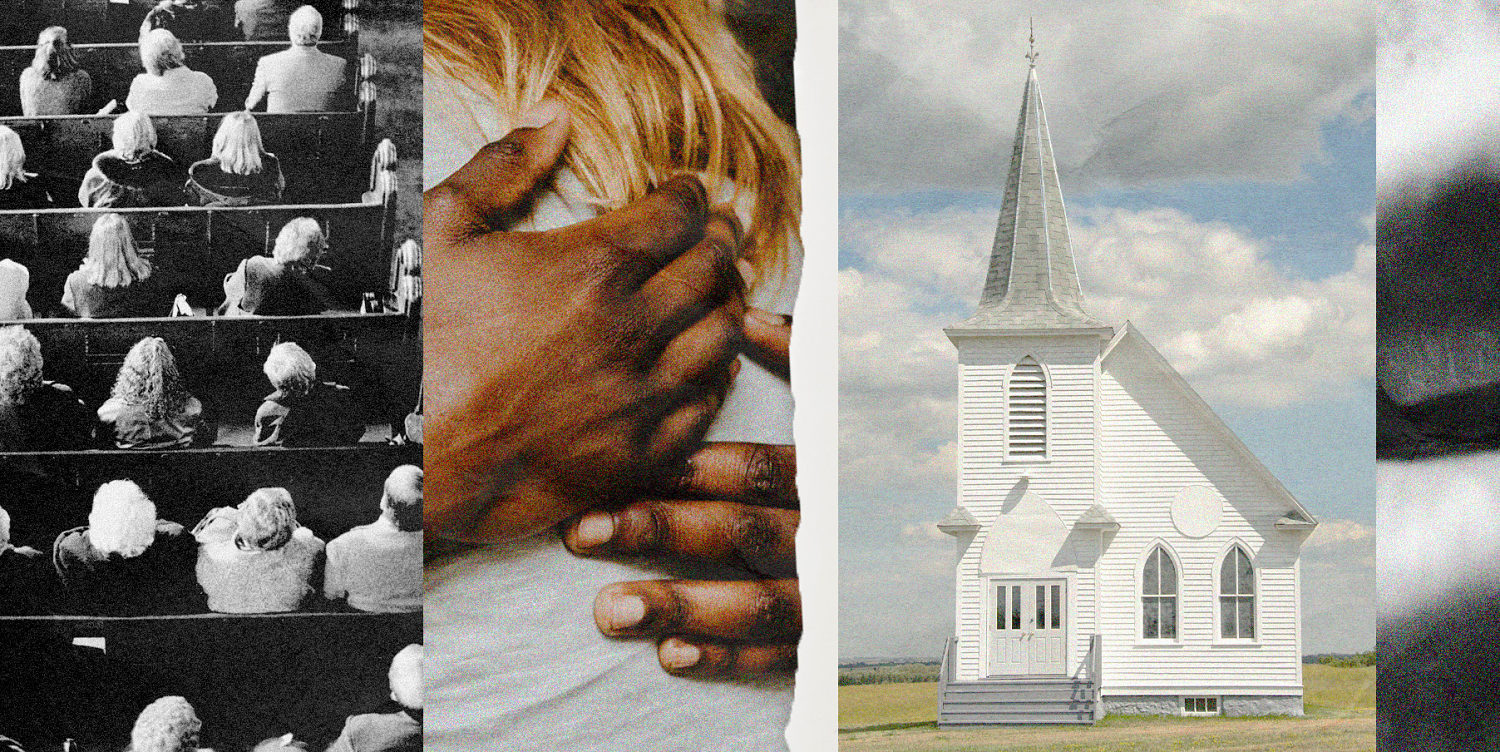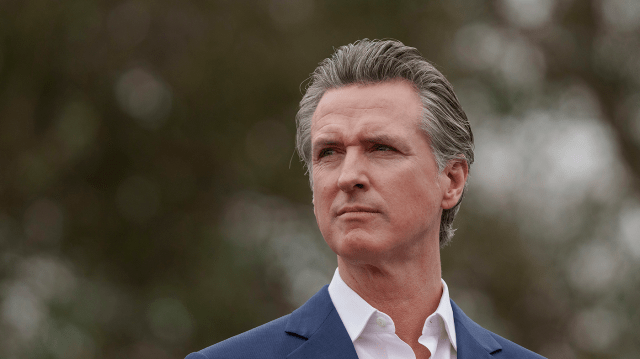
Fred “Bubba” Copeland, a 49-year-old husband and father of three, was the mayor of Smiths Station, Alabama, population approximately 5,400. He was also the pastor of First Baptist Church of Phenix City. Two days after a conservative news website published photographs that Copeland had reportedly posted to an adult website showing him wearing women’s clothes, makeup and a wig, and the same day the news site reported that Copeland had posted photos of others without their consent, Copeland died by suicide.
In his last sermon, he said he’d “taken pictures with my wife in the privacy of our home in an attempt of humor.”
In Copeland’s last sermon, which he gave Wednesday, Nov. 2, he addressed the conservative news site’s report about his cross-dressing. Copeland said he’d “taken pictures with my wife in the privacy of our home in an attempt of humor, because I know I’m not a handsome man nor a beautiful woman, either.”
“I apologize for any embarrassment caused by my private and personal life,” he told his congregation, but added: “This will not cause my life to change. This will not waver my devotion to my family, serving my city and serving my church.”
“I have nothing to be ashamed of,” he said. But, unfortunately, like his friend former U.S. Sen. Doug Jones of Alabama said, “We live in a mean, bitter world where the self righteous tend to throw the largest stones.”
I didn’t know Pastor Copeland, but as someone who has pastored churches in the rural South, I know many people like Pastor Copeland. That is, I know people daring to live and love in the messy complexity of intentional community.
Congregational life is not an easy pull. There is an intimacy folded into it that makes its sharp edges that much more painful. The anonymity that the internet can provide can be easier because it allows for a disconnectedness that the personal nature of congregational life doesn’t allow. When you are a pastor, you know these people know you. And, ideally, within that connectedness is the unwritten contract of congregational life: that we will live in the hope of the divine through care, compassion and consideration. We make unspoken promises to be the Gospel toward one another.
But when the news of Pastor Copeland’s photos emerged, the whisper campaigns and networks of suspicion and scandal were activated. For 48 hours, Fred Copeland was relentlessly attacked. Not Pastor Copeland, not the Rev. Copeland, but Fred Copeland: the father, husband, son and friend was attacked for pictures he’d posted on an adult website. And 48 hours later he lost the battle.
Comments at the end of a Christian Post story about Copeland include people, who apparently belong to faith communities, using Bible verses as weapons and smearing him. Those comments seem to represent only a fraction of those hurling vitriolic, transphobic statements toward a person who, only 24 hours before, had been widely regarded as a loving pastor, a good man and a solid mayor.
“After watching for a day or two people just relentlessly attacking Bubba [online], I was quite bothered by it, and I just decided to reach out to him,” former Phenix City School Superintendent Larry DiChiara told NBC News on Monday.
“It was the day before he passed away. I said: ‘Bubba, keep your head up. You’re a good man with a great heart. Don’t ever forget that. Call me if you need me.’ And his response was: ‘Thank you. It’s been some dark days.’ And I said: ‘I’m sure; just hang in there. It will pass.’”
But it didn’t pass. Forty-eight hours after he was exposed, Copeland was dead.
Everything he’d done before the pictures were released — the number of people he’d reached, the kindnesses he extended, the warmth he’d shared, the love he poured into community — somehow became irrelevant to so many. DiChiara told NBC News that some people have continued to ridicule Copeland after his death. At times, nothing seems greater than the hypocrisies and bigotries of communities that appear holy but practice hell.
The same website that published his photos published another story the day he died alleging that he wrote violent fantasy fiction and posted photos of people from his community to his Reddit page and other places online without their consent. If true, then that was clearly wrong, but it’s hard to see the website having the best interests of others in mind when its first exposé was of Copeland’s cross-dressing.
We talk so much in church, but when it’s time to stop talking, we don’t seem to remember what we’ve been talking about.
We talk about love in church. We talk about compassion. We talk about understanding. We talk so much in church, but when it’s time to stop talking, we don’t seem to remember what we’ve been talking about. We appear holy, but our orthodoxy is as far from our praxis as the east is from the west.
Members of Fred’s church, his intentional community of care, were recorded as being heartbroken for Fred and his family. We see statement after statement of how sorry they are and how sad it is for Fred to be gone.
Even the editor-in-chief of 1819 News, the website that published Copeland’s photos, released a statement: “Our thoughts and prayers are with the people of Smiths Station, the parishioners of First Baptist Church of Phenix City and the victims and family of Mayor Copeland.”
But when our theologies and faith systems and media sites frame cross-dressing as inherently wrong and shameful, is Copeland’s response shocking or is it a foreseeable outcome? Similarly, when we speak of our trans brothers and sisters with disdain and cruelty, is the cruelty that they experience an accident or a foreseeable outcome? When we fail to center personhood and humanity as a bare-minimum requirement for community, and when hate and ignorance comprise our praxis, then death (sometimes even physical death) is the outcome.
If this is how people of faith treated Fred, a highly visible member of our community, then we know how they’ll treat the trans person they don’t know. If we suddenly turn on those in our midst, then how can we ever turn toward our gay neighbors in love? If we are harmful toward those we know, then how we will treat those we don’t?
If this is how people of faith treated Fred, a highly visible member of our community, then we know how they’ll treat the trans person they don’t know.
And when hate and ridicule and derision have their expected outcomes, the very faith communities that should be mature, informed, compassionate and swift to care assume the predictable and empty posture of sorrow. “We are sorry that this happened.” We want to be victims in the theater of our own construction. We assume no responsibility for the house we built with our hands. We want the indulgence of sorrow without accountability for what caused the pain. We want to be “forgiven” without admitting complicity. We want restoration without repentance. We are forgiving ourselves for work we haven’t done.
I want to be clear: We are not forgiven. When we know the harm that poor theology has caused, and we choose to continue to espouse a faith of death and communal dismemberment, then we are not forgiven. When we allow our biases to inform our treatment of others, we are not forgiven. When our cross-dressing or trans siblings are attacked and we turn away, we are not forgiven. When we make religion the excuse for our ignorance, we are not forgiven. We are not forgiven for our hate. We are not forgiven for our fears. We are not forgiven for our cruelty.
We are not forgiven because forgiveness is not what we need. We (churches, faith communities, all across this country) need to sit in our shame and let our hearts be broken. We need to let it hurt until we commit ourselves to not simply be sorry, but to be change. And, yes, brothers and sisters, children of the divine, we can change. We can change our minds, our hearts, our souls. Because we will not be forgiven until we do.
If you or someone you know is in crisis, call or text 988 to reach the Suicide and Crisis Lifeline or chat live at 988lifeline.org. You can also visit SpeakingOfSuicide.com/resources for additional support.
![]()





